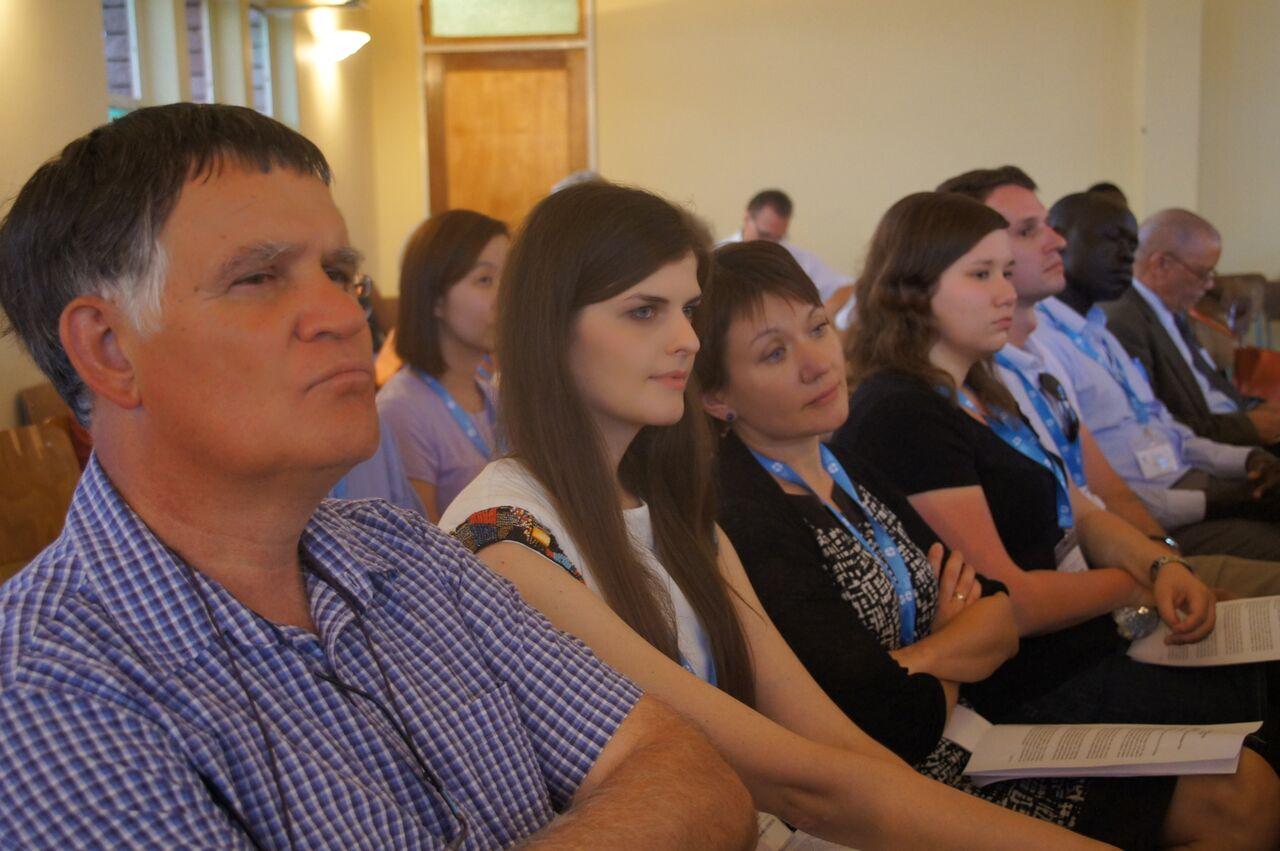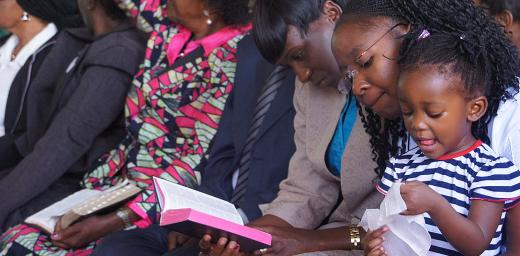Social transformation through concrete and contextual theology

Participants at LWF's conference,
NAMIBIA, Windhoek/GENEVA, 2 November 2015 (LWI) - Theology that seeks to contribute to social transformation must relate to the contexts in which it is applied, offer critical and creative approaches and address concrete issues.
Theologians from Lutheran and other Christian traditions identified the four features—contextual, creative, critical and concrete—as crucial approaches as The Lutheran World Federation (LWF) prepares to mark the 500th anniversary of the Reformation in 2017.
In a Reformation Day message on 31 October, the 70 scholars urged the LWF to build up the capacity of its member churches to bring politics, economics and theology together to transform society according to God’s vision of abundant life for all.
They met in Windhoek, Namibia, 28 October -1 November to discuss “Global Perspectives on the Reformation – Interactions between Theology, Politics and Economics.”
Their message stated, “Sensitivity to context reveals the need for critical reflection on one’s own universalizing assumptions and on the context. Critical reflection discloses that some dynamic power and privilege need to be overthrown, which invites creativity which in turn generates concrete actions.”
The contextual element of theology involves different ways of hearing God’s word, relating to God’s presence and reflecting on and addressing the world’s diverse needs. It includes various ways of engaging with other faiths, the theologians added.
The scholars emphasized that the critical aspect of theology involves questioning certainties, challenging centers of power that shut down public space or exclude people. Critical theology acknowledges its own limits, biases and self-interests, they said.
Creative theology is marked by the courage to think anew, offering enhanced understanding of God’s will, nurturing dynamic liturgical and biblical resources. It offers practical solutions and alternatives to bring theology, politics and economics together to transform society.
Participants agreed that for theology to be concrete, it must speak and act against economic, gender and climate injustice; reform structures, policies and practices that support injustice; and equip pastors and laity to engage in the political and economic realms.
“Transformative theology requires and enables looking with new eyes, truth-telling about the realities that we face. Seeing with new eyes is made possible by the communion and the differences within it; deep and trusting relationships with the communion enable us to see reality through others’ eyes,” they said.
“We are therefore profoundly grateful for the differences among us,” concluded the theologians representing churches and theological institutions in Africa, Asia, Europe, North and Latin America. “This is precisely how a communion works and what communion is,” they added.



